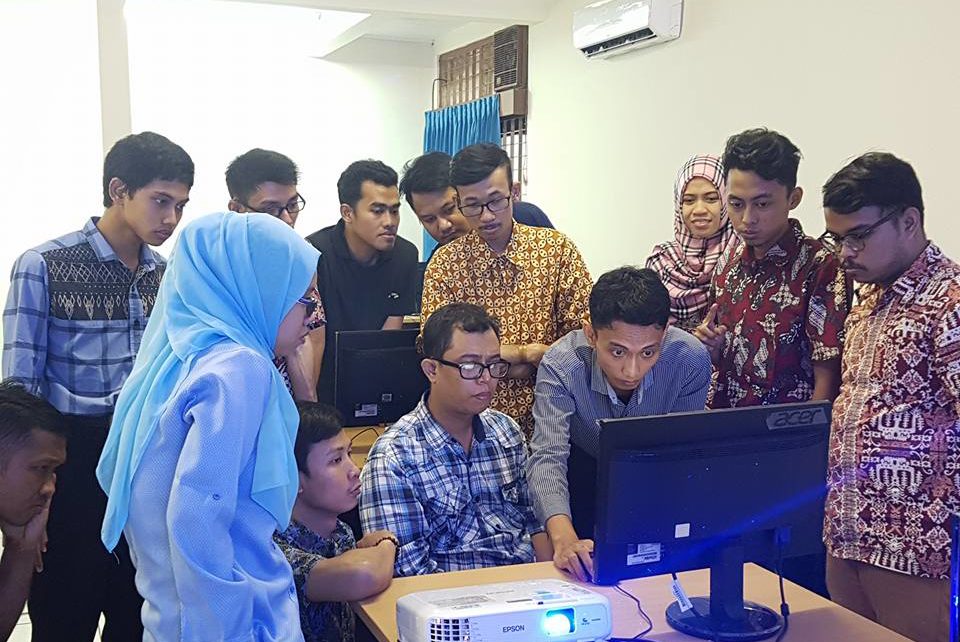Context: Youth with disabilities often face barriers in every aspect of life, including education and employment. Services in these domains tend to exclude such youth due to a lack of consideration for making the services accessible. The Information and Communications Technology (ICT) sector is rapidly growing and as a result ICT related skills are highly demanded by the labour market. ICT education can provide youth with disabilities with valuable skills and knowledge that can help empower them to secure decent work or start their own business after finishing their studies. The Korean Society for Rehabilitation of Persons with Disabilities (KSRPD), Children with Disabilities Foundation (YPAC) and Jakarta State Polytechnic School (PNJ) are committed to improving the lives of youth with disabilities in Indonesia by providing them with ICT education and promoting access to high quality employment.
Implementation of programme/ initiative: Inclusive ICT education is a part of a larger rehabilitation effort by KSRPD to ensure youth with disabilities in Asia and the Pacific can secure decent livelihoods. It is also part of the Global ICT Challenge for Youth with Disabilities held annually to identify youth with disabilities who innovate using ICT. KSRPD looks for diverse partners including government entities, the private sector and civil society organizations. In Indonesia, KSRPD is partnering with YPAC and PNJ to implement their inclusive ICT education programme. KSRPD provided funds of approximately US$ 100,000 along with technical assistance for each implementing partner. The implementing partner must provide accessible spaces and human resources for the programme. If necessary, renovations are made under KSRPD guidelines to ensure the ICT centres are accessible for youth with disabilities. Youth with disabilities are selected by YPAC and PNJ to enroll in the programme. Once they finish the programme and pass the exam, they receive a certificate and the implementing partners assists the students in finding a job or starting their own company.
Main challenges: The first challenge to providing inclusive ICT education is the lack of accessibility. KSRPD overcomes this by providing inclusive material and classroom renovations so that all education infrastructures are accessible. Another challenge is the lack of awareness about the needs of persons with disabilities among ICT educators. Many of the educators are ICT professionals who have never interacted with students with disabilities before. The implementing partners, with technical assistance by KSRPD, solve this problem by providing information on how to make ICT and education more inclusive, such as using of screen readers.
Results achieved: Since the programme is ongoing, the full impact cannot yet be assessed. However, KSRPD has already successfully raised the awareness about the needs of youth with disabilities among the ICT trainers and educational entities. The programme has also provided many of the youth participants with hope, because they can learn valuable skills relevant to a future career. The boast in self-confidence and self-efficacy is imperative in motivating them to innovate and achieve their full potential.
Moving Forward: KSRPD is planning to add additional programmes in the future, including entrepreneurship and soft skills trainings. The aim of KSRPD is to create an inclusive society where youth with and without disabilities can learn and work together. To do so, KSRPD acknowledges that all future work must maintain the important feature of having training programmes that encourage youth from all backgrounds to work and learn together.
Replicability: Key to the success of the programme is that it incorporates diverse stakeholders (government, civil society, the private sector and youth with disabilities) to engage in its entire process. The programme strives to create social entreprenurship in which promoting a disability friendly environment benefits people and businesses. Inclusive and accessible education and decent jobs also raises awareness about disability by allowing people with and without disabilities to interact on a regular basis.
References:
Korean Society for Rehabilitation of Persons with Disabilities
http://www.freeget.net/main.php
Global IT Challenge for Youth with Disabilities
http://www.globalitchallenge.com/bbs/board.php?bo_table=sub01_2
Presentation on Disability Inclusive ICT by KSRPD
http://dep.go.th/sites/default/files/files/news/Annex%201.%20Overview%20of%20KSRPD.ppt
Acknowledgments:
This good practice was kindly prepared by Mr. Abi Marutama
Project Details
Date: April 14, 2017
